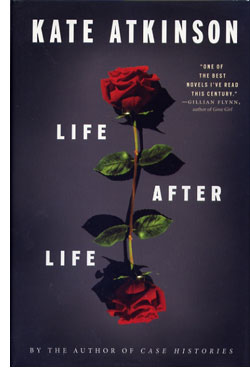In a comfortable 1870's wood-frame
townhouse in front of a charming fire in a wood burning stove, among a
12-member book group with maybe two e-readers in all, technology in
the form of Skype brought author Jennie Fields into our meeting.
Generous. Warm. Intelligent. Ms. Fields was everything that member
B.B.said she was when she was B.B.'s writing mentor almost a decade ago. (Sessions were held in the Barnes and Noble on 7th
Avenue. I probably was not the only one who wondered why
I didn't attend. What was I so busy with?) And we found out that Ms. Fields was a neighbor—just two blocks away from where we were last night.
Briefly...
Some things we said last night before the call...
Members discussed how Edith Wharton's
transformative love affair at 46 was as adolescent as any crush felt
by a fourteen year old. And so with most adolescent crushes—it
didn't matter who the object was. Even a promiscuous seducer like
Morton Fullerton. Wharton's relationship with her husband, Teddy,
was a shallow thing easily destroyed. Of the characters in Age of Desire, the only deep relationship she
had was with Anna, her servant, her tutor, her governess, her editor,
her typist.
During the call, some things we learned from the author...
All of Edith Wharton's letters in the
book are actual letters—they are the framework for the Age of
Desire. Edith's letters to Morton Fullerton were rescued/taken at
gunpoint by a woman. (Morton remained single and a scoundrel,
blackmailed more than once, until his death in the 1950's in his 8th
decade. He never destroyed or returned the letters as asked. Fields
speculated that he knew that they were valuable.)
In addition-something—serendipity?
a dead soul's desire? a lucky break?--brought another set of letters
to Ms. Fields just as she was fact checking her final draft of Age of
Desire. The letters were Anna's. And, their contents confirmed Ms.
Fields' intuition and speculation about Anna and her dealings with the Whartons. Anna wanted to...more than that...desired to serve Edith...to make
her happy...and to contribute to Edith's work. And she alone was able to
soothe and comfort Teddy through his early bipolar episodes.
Don't judge historic figures by modern
sensibilities.Edith's use of Anna...seemed despicable to some
members--well at least one--this blogger. It isn't fair to judge Edith for doing what the upper class
of her period did with their servants. Nor is it fair to expect
better behavior from women of genius than we expect from men of genius.
To the romantics in the group, it was good to learn that Edith most likely found love with
Walter Berry...her early and enduring love. She called him "the love of her life".
WHAT FOLLOWS, fittingly, is a correspondence between B.B. and Jennie Fields...
Hi Jennie,
Thanks so much for spending time with us this evening. (I can hardly believe Skype worked out given our amateur approach on this end!) Everyone agreed that meeting and talking with you topped off our discussion beautifully and made the book all the more impressive. After we said goodbye to you, I thought to ask the others what they thought of the sex scenes and everyone laughed appreciatively and said they wished we'd told you how great they were.
Thanks again for this evening!
Thanks so much for spending time with us this evening. (I can hardly believe Skype worked out given our amateur approach on this end!) Everyone agreed that meeting and talking with you topped off our discussion beautifully and made the book all the more impressive. After we said goodbye to you, I thought to ask the others what they thought of the sex scenes and everyone laughed appreciatively and said they wished we'd told you how great they were.
Thanks again for this evening!
B.B.
Hi B.B.
I loved talking to your book group. I'm glad they enjoyed it. Too bad you didn't bring up the sex scenes. I would have shared that among Edith's papers when she died was some extremely explicit erotica she'd written and kept hidden which helped me understand her sexuality. It gave me the courage to write those scenes. If she could write hot scenes, hey, why couldn't I?
Thanks for inviting me, and thank everyone for taking the time to read my book. If they find extra reading time, you might mention that Crossing Brooklyn Ferry and The Middle Ages are both set in Park Slope. (Must be all those years in advertising. I'm always selling!)
Jennie
Outtakes with literary references and a reading suggestion...
Jennie:
BTW: I know that Edith meant May in "Innocence" to be a horrible example of repression, but I am intrigued by how she is presented: telling Newland he's free to break their engagement even though it would bring mortification to her, Announcing the pregnancy before the pregnancy and arranging a party to send her rival packing, and, finally, telling a private version of events to her son. Behind the conventional, child-like woman, Edith has created a steely shadow side, which Newland glimpses. I think that's quite a feat for the author. In some ways--and perhaps this reveals what a conventional person I am--May's the most interesting character in the book.]
B.B.
B.B.....
Wow, I couldn't agree with you more about May. (Age of Innocence by Wharton) There's something very manipulative about her which isn't innocent at all. Actually I found that recognition somewhat chilling. She is the perfect product of her society, though. Think how they close ranks on Newland when they see him straying. If you have the chance, read Roman Fever, to my mind Edith's best short story, and there's a moment at the end that is similarly chilling, and so brilliant.

